Search
Remove Ads
Advertisement
Summary 
Loading AI-generated summary based on World History Encyclopedia articles ...
Search Results
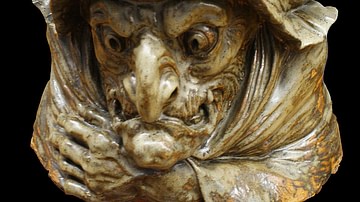
Definition
Baba Yaga
Baba Yaga (Baba Jaga) is a witch or ogress from Slavic folklore who lives in a magical hut in the forest and either helps, imprisons, or eats people (usually children). She is among the most famous figures from Slavic folklore as guardian...
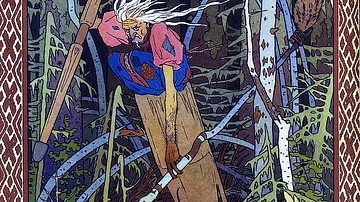
Image
Baba Yaga
An illustration portraying the Baba Yaga. The image comes from the traditional Russian fairy tale called Vasilisa the Beautiful that discusses the adventures of a young girl who encounters Baba Yaga upon being expelled from her home by her...
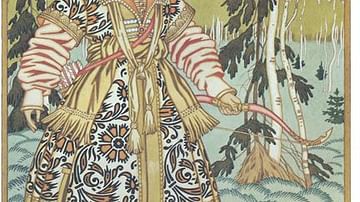
Article
The Frog Princess
The Frog Princess is a Slavic folktale focusing on the importance of recognizing someone’s inner beauty, regardless of their outward appearance, as well as the possibility of redemption after failure. The tale has many variants and appears...
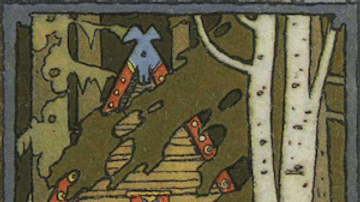
Image
Baba Yaga's Hut
An image portraying Baba Yaga's hut. Baba Yaga was said to live in a hut standing on chicken's legs. In Slavic folklore, Baba Yaga was a witch who often preys on children to eat them. However, some accounts present her as a wise and helpful...
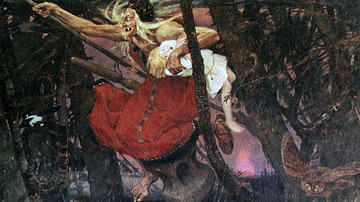
Image
Baba Yaga by Vasnetsov
A painting portraying Baba Yaga. According to Slavic folklore, Baba Yaga was a witch who often preys on children to eat them. However, some accounts present her as a wise and helpful creature. The painting was created in 1917 and is now located...

Image
A Sculpture of Baba Yaga
A sculpture of Baba Yaga. Baba Yaga is a character from Slavic folklore who was said to be an evil spirit taking the form of the old woman. She was often portrayed as a caricaturally ugly person with a hooked nose and wrinkled face. The sculpture...
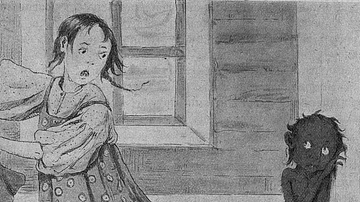
Definition
Kikimora
Kikimora (pronounced Kih-kee-mora) is a female house spirit from Slavic lore who can be helpful or malevolent depending on the behavior of the homeowner. In differing versions of her stories, there are two kinds of spirit, one generally helpful...

Video
9 Notorious Creatures from Slavic Folklore - Slavic Mythology
These are the most notorious Slavic creatures from the Slavic Mythology. Creatures from the Slavic Folklore found in this video: Kikimora - an evil spirit that enters the house. Domovoi - a beneficial spirit of the house. Baba...
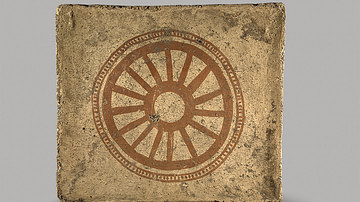
Image
Painted Mural Tile with Wheel from Western Iran
Painted brick from Baba Jan, Luristan, Iron Age III, c. 850 to 550 BCE. National Museum of Iran, inv. no. 6735 This terracotta tile with a painted wheel is one of the c. 200 mural bricks that once decorated the “ceremonial rooms” of the...
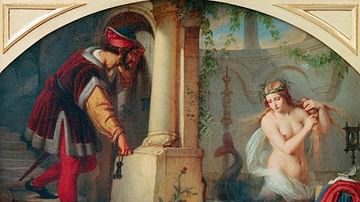
Definition
Melusine
Melusine (pronounced Mel-ew-seen, also given as Melusina) is a legendary figure from European folklore depicted as a mermaid, sometimes with two tails, as a serpent from the waist down, or as a dragon. She is associated with the ruling houses...